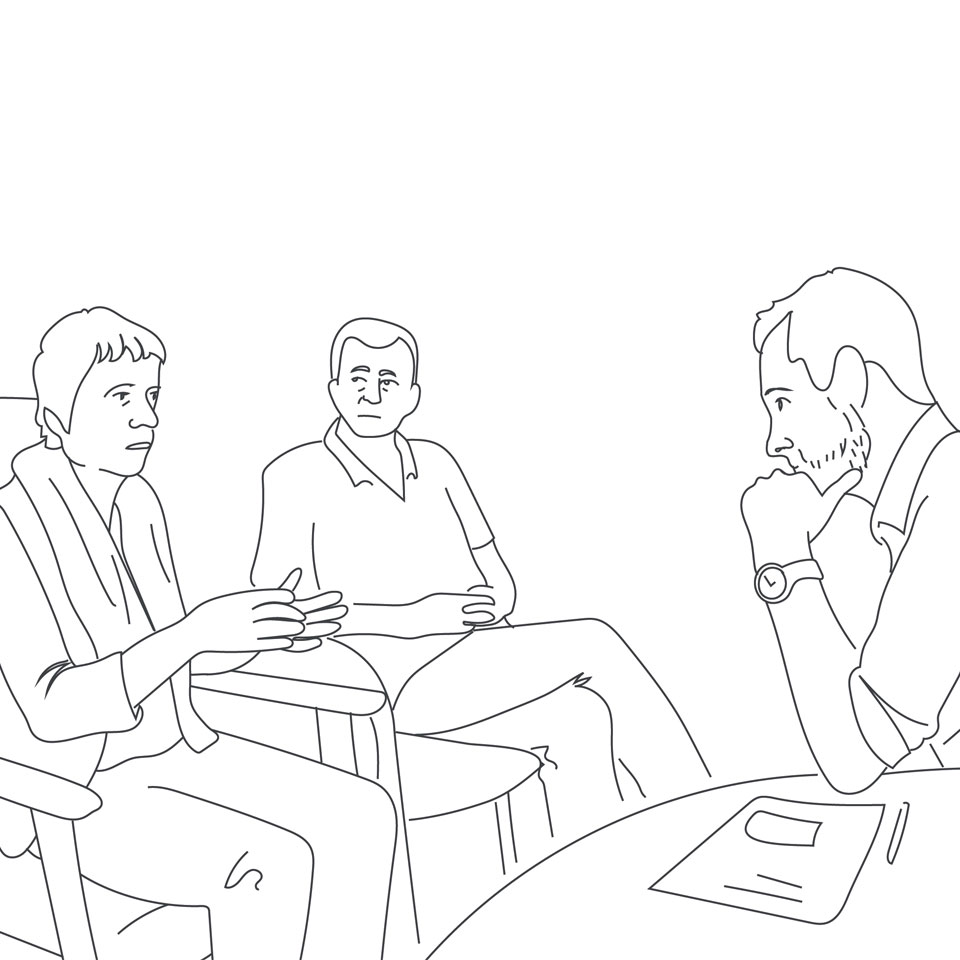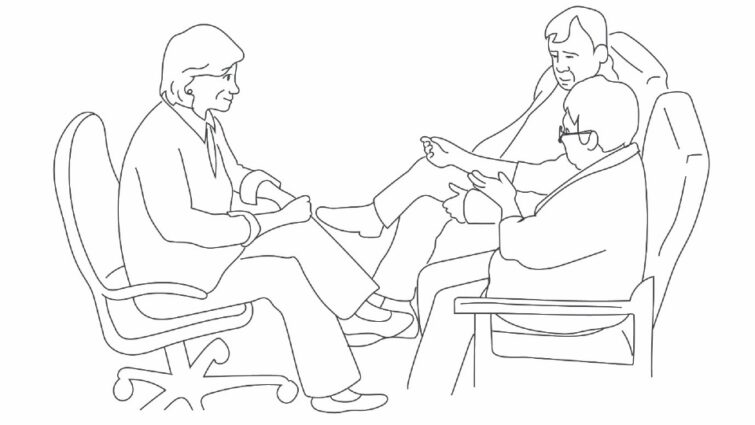
CRCC scholars establish a novel approach to healthcare and end-of-life communication training
RealTalk, the groundbreaking educational tool for health care practitioners has been licensed to Treetops Hospice ensuring long-term high-quality communication care to patients and their families.
The CRCC is proud to spotlight impactful work conducted by our research community members here at Loughborough University and beyond. We are especially excited about recent developments in the work conducted by colleagues on the Language and Social Interaction research theme.
RealTalk, established in 2015, is a set of evidence-based training resources for health and social care practitioners, developed by Professor Ruth Parry, Dr Marco Pino, and the VERDIS team, to support difficult conversations with patients. Sensitive, open conversations about illness progression and end-of-life allow people and their loved ones to make decisions about their lives and future. Such conversations help reduce futile and unwanted care – and reduce the suffering of dying people’s loved ones both before and after bereavement.
For several years, RealTalk has been developed and managed at Loughborough University, thanks to funding from the Health Foundation, National Institute for Health and Care Research, and the Loughborough University Enterprise Projects Group. With funding coming to an end, Dr Pino, Professor Parry, project manager Becky Whittaker, and the team have worked to license RealTalk to Treetops Hospice. Project lead Dr Marco Pino says the licensing will “ensure RealTalk’s sustainability in the long term” and “ultimately, make a difference to the care of patients and their families”. The licensing deal reflects the impact of RealTalk on the important and challenging work of practitioners in palliative, end-of-life care and bereavement support.

RealTalk comprises a series of training modules that incorporate clips from video recordings of real-life consultations and evidence from cutting-edge observational communication science. A range of topics are covered including discussing prognosis in the context of palliative and end-of-life care and bereavement support. Traditional training approaches often rely heavily upon role play as a learning technique, and these scenarios can sometimes lack authenticity. RealTalk’s direct evidence base enhances the teaching of the complexities and skills entailed in healthcare practitioners’ real-life interactions with patients and their family members. More than 300 trainers have registered as RealTalk users, and feedback gathered by the research team over the years found the resources make a positive difference to healthcare workers’ ability and confidence in facilitating sensitive but important conversations.
The mission of RealTalk is to teach healthcare practitioners how to engage in end-of-life talk with patients and their companions as well as conversations around pain assessment and bereavement. The design of the resources was made possible by using the Conversation Analysis method, exemplifying once again CRCC’s and the University’s reputation for world-leading expertise in the cutting-edge communication science approach of Conversation Analysis.
We would like to highlight that the academic team has amassed a wealth of knowledge around the real-world applications of their research which is still ongoing and there are plans to expand the resources to include conversations recorded in other similar settings where end-of-life conversations happen. These are a crucial but highly sensitive part of health and social care, including hospital emergency departments, drop-in information sessions for newly diagnosed patients and recently bereaved people, as well as hospice-at-home visits. A new article published in Health Communication by Dr Marco Pino and Dr Laura Jenkins and now available through open access shows how the task of discussing disease progression and end-of-life entails sensitivity to each patient’s level of awareness and readiness to talk about such sensitive matters.

The authors used conversation analysis to investigate a common challenge in interactions between healthcare practitioners and patients with incurable, progressive illnesses: how to promote discussion about disease progression and end-of-life in circumstances where the patient might have limited awareness of their prognosis. Current national guidance recommends that healthcare practitioners proactively offer every patient opportunities for honest conversations about what lies ahead. Many healthcare practitioners nevertheless experience these conversations as difficult due to fear of causing distress and destroying hope. Based on real-life recordings of palliative care consultations Pino and Jenkins’ study identifies some ways in which experienced doctors navigate these dilemmas. The doctors in the study invited patients to share what other healthcare practitioners had previously told them about their condition. This enabled the doctors to explore what the patients already knew and understood about their prognosis and to use that as a starting point to promote further discussion about disease progression in a gradual way. These findings underpin some of the RealTalk training resources, which evidence how healthcare practitioners can initiate tender conversations about the patient’s future in proactive but at the same time sensitive ways.
Click here https://www.tandfonline.com/doi/full/10.1080/10410236.2023.2185579 to access the latest article using conversational analysis on the study of end-of-life discussions in palliative care by Dr Pino and Dr Jenkins.